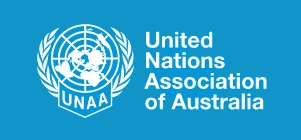
The United Nations Association of Australia, Queensland branch
Submission to the process of enshrining
a National Indigenous Voice in the Australian Constitution
The UN Declaration on the Rights of Indigenous Peoples was passed in 2007. After initially voting against it, Australia adopted it in April 2009. The Declaration outlines the individual and collective rights of Indigenous peoples in a broad series of categories. It “emphasizes the rights of Indigenous peoples to maintain and strengthen their own institutions, cultures and traditions, and to pursue their development in keeping with their own needs and aspirations. It “prohibits discrimination against indigenous peoples,” and it “promotes their full and effective participation in all matters that concern them and their right to remain distinct and to pursue their own visions of economic and social development.”
In 2002, in another milestone, the United Nations established the Permanent Forum on Indigenous Issues. It’s role is to enable the voice of Indigenous Peoples worldwide to be heard on any matters concerning their interests, rights and wellbeing, in any sections of United Nations policy setting instruments. Aboriginal and Torres Strait Islanders have maintained a presence in the Forum.
Australia is now in a unique position to put in place a permanent institutional framework to enable “full and effective participation in all matters that concern” Indigenous Australians, by honouring its election commitment to a referendum on enshrining their Voice in the national Constitution. The referendum must be carried forward without delay, once a model for the Voice has been settled.
Following the referendum, and in the expectation that the Australia public at large will recognise this historic opportunity to affirm the unique status of Indigenous Australians in our nation, enabling legislation for the Voice must be passed in the next term of Parliament.
An exploration of the membership model for the National Voice is already underway. The efforts of those involved are focused on ensuring that previously unheard Aboriginal and Torres Strait Islander people have the same chance of being selected for an active role in the consultative process as established leadership figures. Knowing the integrity and commitment of those involved gives us confidence that an effective and inclusive model will be proposed.
Implementation of the National Voice process will ensure, that, in accordance with the UN Declaration, the rights of Indigenous Australians will be effectively upheld, including “ownership rights to cultural and ceremonial expression, identity, language, employment, health, education, and other issues.” Furthermore, only by having their Voice enshrined in the Constitution can Indigenous Australians be assured that the will have a permanent, national Voice in matters affecting their interests, rights and wellbeing.